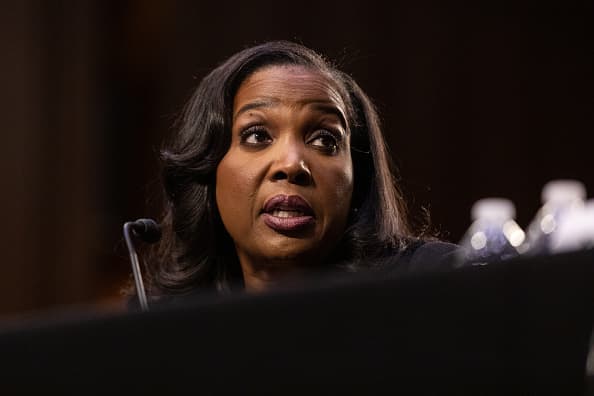HONG KONG: Hong Kong is exceeding expectations in attaching the green label to its global financial hub status amid a worldwide drive for climate change.
Financial Secretary Paul Chan Mo-po unleashed a string of initiatives in his 2024-2025 Budget to foster a low-carbon economy. One key priority is to formulate sustainability disclosure standards and roll out a “roadmap” and a “vision statement” to help businesses and financial institutions in sustainability reporting and the analysis of relevant data.
“Accurate information is essential in stimulating sustainable financing. The onus for this is on international organisations and government agencies in the next few years,” Chan said in the budget speech.
“To deepen Hong Kong’s green and sustainable finance development, enterprises must align their practices in sustainability disclosure with international standards.”
Sustainability disclosure standards normally refer to the environmental, social and governance (ESG) – a set of practices and metrics used to gauge businesses beyond their financial performance.
ESG, which came under the spotlight in the 21st century, often comes along with corporate social responsibility and a low-carbon economy.
The Hong Kong Special Administrative Region’s (SAR) bid to achieve its goal of driving sustainability disclosure standards calls for concerted efforts, although there have been major improvements in the past few years.
According to a report by the Hong Kong Institute of Certified Public Accountants in November last year, 141 out of 1,882 Hong Kong-listed companies surveyed during the fiscal year ended Dec 31, 2022, had adopted ESG external assurance – accounting for 7.5% of the total number and representing an almost 70% increase from that of the previous year.
The proportion of large-market-capitalisation companies practising ESG external assurance was significantly higher, with 57 among 137 having done so, and the proportion rising to more than 41% from 20% in 2021, the survey found.
Unlike financial reporting, which has well-established accounting standards and frameworks, sustainability reporting lacks standardised metrics, methodologies and disclosure requirements.
“ESG issues are often complex and multifaceted, making it difficult to define clear and universally applicable indicators to gauge performance,” said Adele Yim, head of risk advisory services at audit and consultancy firm, Mazars in Hong Kong.
“ESG disclosures also often involve qualitative and forward-looking information that can be subjective and challenging to objectively verify.”
Implementing ESG external assurance can also be financially burdensome, particularly for small businesses operating with limited resources.
The additional expenses associated with engaging assurance providers and undergoing the process may deter companies, especially those that don’t perceive significant benefits or a strong business case for external assurance, explained Yim.
But there’s a general consensus that ESG is particularly relevant and necessary for a financial hub like Hong Kong, as the sustainability philosophy is becoming an increasingly integral part of the city’s low-carbon ambitions.
Peter Lam, a researcher at think tank Our Hong Kong Foundation, said the main areas where the value of ESG is reflected include risk management, financial performance and reputation. “ESG issues can also have a material impact on a company’s operations, supply chain and customer base, and can affect its access to capital as well as the cost of financing.”
While investors used to base their selections mostly on a company’s track record, they’re now more concerned with the future, said Lam, adding that ESG reporting indicates management strength and gives investors confidence in a company’s long-term prospects.
Asset management firms and institutional investors play a pivotal role in driving the integration of ESG principles in the financial industry.
Major US corporations like BlackRock, Vanguard and State Street have integrated ESG factors with their investment strategies, engagement approaches and voting practices. Their influence spans worldwide markets, motivating companies to enhance their ESG performance and disclosure methodologies.
Patrick Chan, chief financial officer at Hong Kong-based environment services firm, Baguio Green Group, said embracing ESG can benefit the SAR by strengthening its competitiveness, fostering sustainable economic growth and positioning the city as a leader in responsible finance.
“Furthermore, considering Hong Kong’s vulnerability to climate change and its role as a gateway for capital flows, addressing environmental and social issues has become crucial for long-term resilience and stability.”
It’s hoped that the comparability, reliability and transparency of sustainability information in different jurisdictions and industries can be improved following the publication of “the International Financial Reporting Standards – Sustainability Disclosure Standards” (IFRS SDS) by the International Sustainability Standards Board last year.
The IFRS SDS, which is based on four pillars of the Task Force on Climate-Related Financial Disclosures (TCFD) framework – governance, strategy, risk management, and metrics and targets – aims to establish a universal foundation for disclosing sustainability-related information, having gained extensive international support from various stakeholders.
Economies like the Chinese mainland, the UK, Japan, Singapore, Australia and Canada have said they’re willing to enforce ESG international standards.
In Hong Kong, mandatory climate-related disclosure in ESG reports for listed companies, following international standards, guidelines and frameworks will start next year. The effective date has been postponed for one year to allow more time for public firms to prepare for the new requirements. — China Daily/ANN

